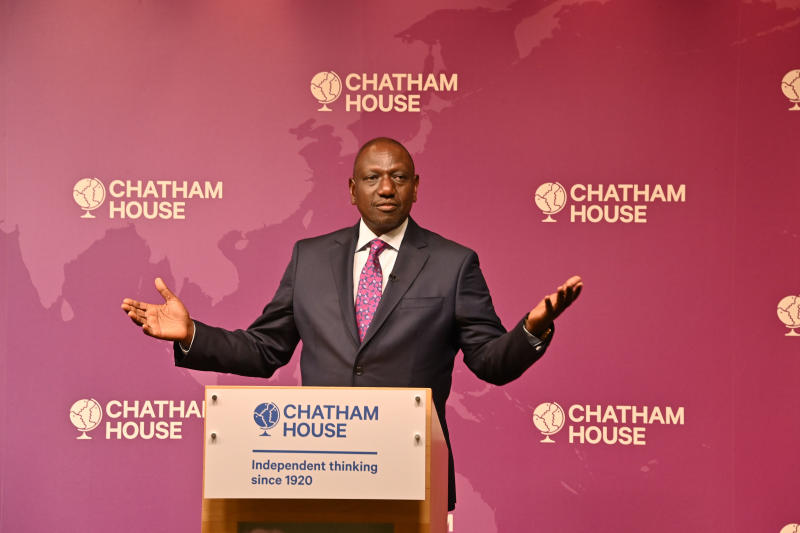
Deputy President William Ruto speaks on the challenges facing the upcoming General Election in Kenya at Chatham House, London, UK on March 7, 2022. [DPPS, Standard]
Almost as soon as Deputy President William Ruto jets back after what has been an eventful two weeks in the US and UK, his competitor ODM leader Raila Odinga will also leave the country for his own tour abroad. Like Dr Ruto, Mr Odinga will give a talk at the Royal Institute of International Affairs, Chatham House as well as have a meeting with the Archbishop of Canterbury Justin Welby (pictured).